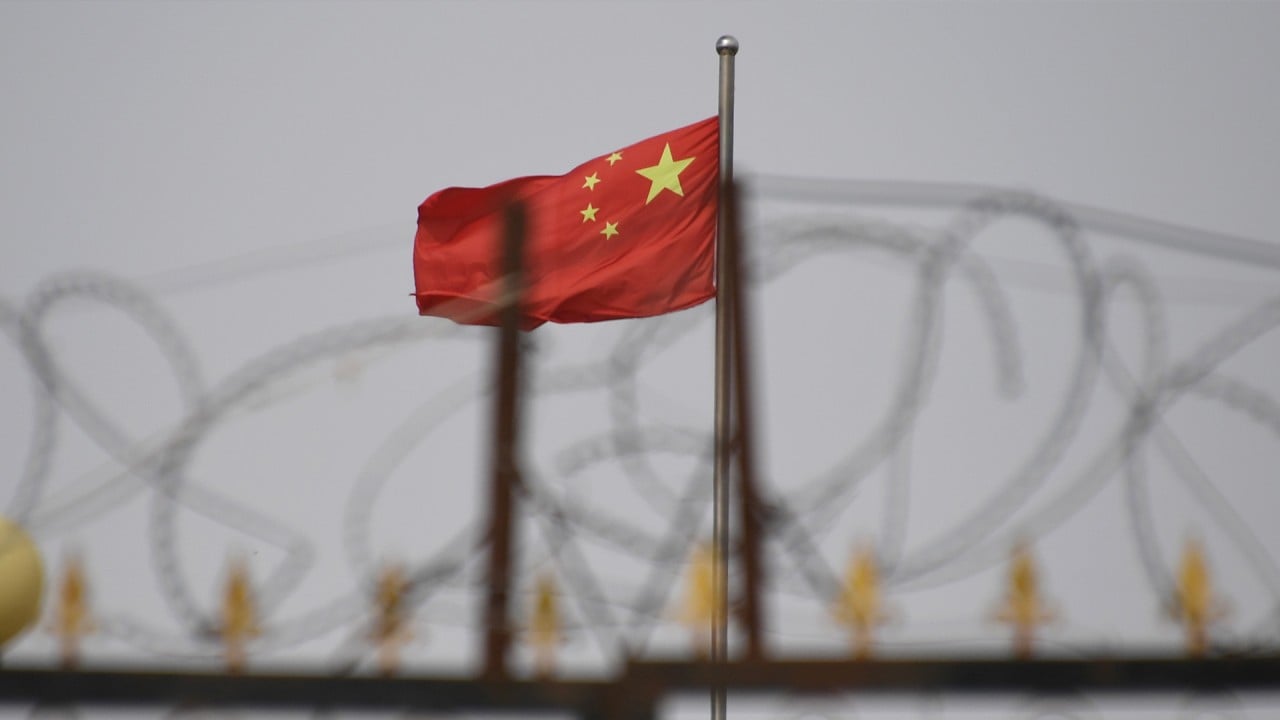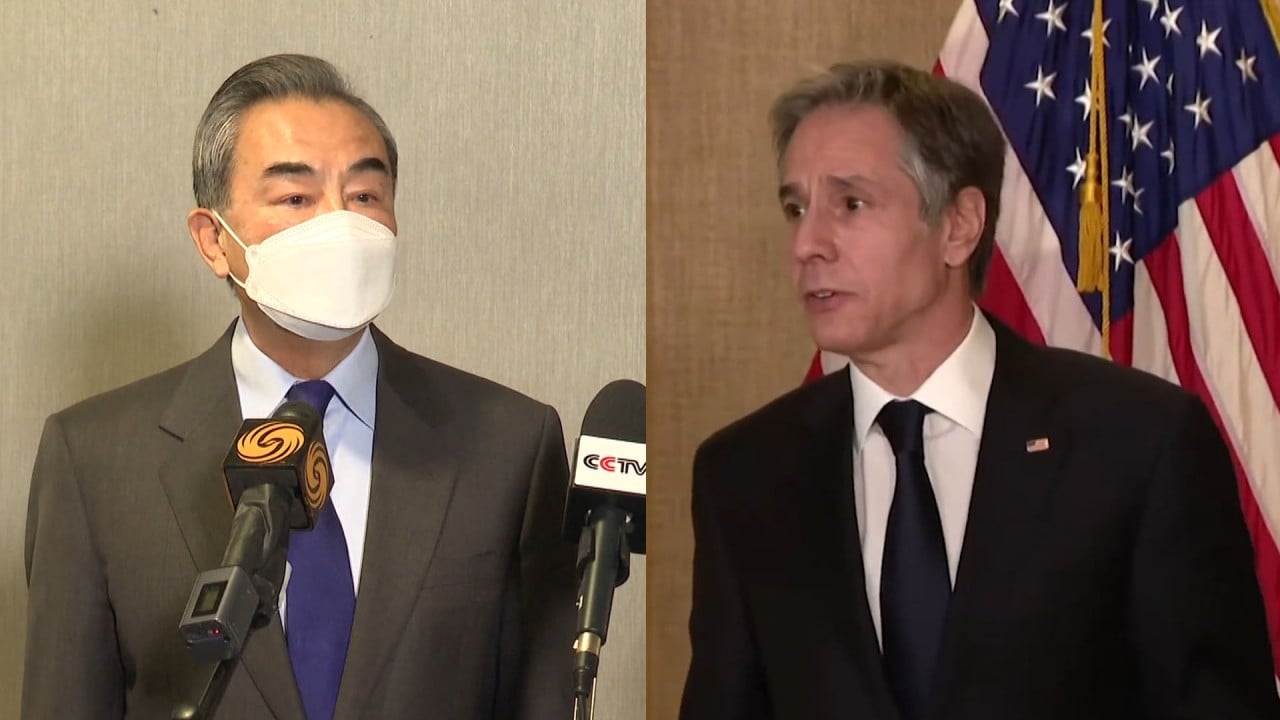
China blames ‘aggressive US wars’ for humanitarian disasters around the world as it hits back at criticism of human rights record
- Beijing’s latest attack on US ‘selfishness and hypocrisy’ comes as it continues to hit back at accusations of human rights abuses in Xinjiang
- The report attacking America’s humanitarian record is part of the Communist Party’s efforts to shift the narrative by focusing on Washington’s behaviour
China has accused the United States of causing humanitarian disasters with its “aggressive wars” and military interventions as it continues to hit back at attacks on its human rights record.
On Friday a report issued by the China Society for Human Rights Studies – a group controlled by the State Council Information Office, the body responsible for external propaganda – criticised America’s “humanitarian interventions” and claimed the US was responsible for 80 per cent of armed conflicts between 1945 and 2001.
“The majority of the aggressive wars were launched by the US unilaterally. They resulted in mass casualties and destruction of property and led to appalling humanitarian catastrophes. Such foreign interventions lay bare America’s selfishness and hypocrisy,” the report said.
“China has become increasingly impatient and assertive since the Alaska meeting and we are seeing strengthened efforts by the Chinese government and state-controlled media to shift the blame onto the US for its flaws and missteps on human rights,” he said.
President Xi Jinping has reportedly labelled the US as a source of global turbulence. Recently a local government portal in Qinghai published a speech by a local official who quoted Xi as saying that it was the biggest threat to China’s development and security.
Last month, Foreign Minister Wang Yi denounced Washington as a villain “wilfully interfering in other countries’ internal affairs in the name of democracy and human rights”.
US lawmakers prepare a sweeping effort to counter China
Fridays’ 6,000-word report details Washington’s involvement in seven major conflicts since the end of World War II, from the Korean war to the war in Syria, and said it had been involved in dozens of proxy wars and anti-government insurgencies across the world.
“The humanitarian crisis caused by military actions stems from the hegemonic mentality of the US,” it said. “Given the inherent contradiction between humanitarianism and hegemony, it is like asking a tiger for its skin to expect a hegemon to defend human rights in other countries.”
While Beijing is still struggling to strike a balance between cooperation and confrontation in dealing with the Biden administration, analysts believe the US-China rivalry is inching towards a Cold War-style ideological conflict.
They noted that many in China now believe the Covid-19 pandemic has speeded up Washington’s inevitable decline and tilted the global balance of power in Beijing’s favor.
Yang Jiechi, Xi’s top foreign policy aide, declared that the US was not in a position to criticise China during his Alaska meeting with Secretary of State Antony Blinken.
“I think we can all agree that the US and China are locked in an ideological and adversarial struggle,” said George Magnus, a research associate at Oxford University’s China Centre.
Gu also agreed. He said that with US-China tensions showing few signs of easing, their spat over human rights, values and ideology would only intensify, saying: “While the intensity of their row may not be comparable to what the Soviets and the Americans did in the Cold War, the way China responds to Western countries’ criticisms smack of Cold War times.”
China lashes out over boycott calls that ‘politicise’ Beijing Winter Olympics
As the divide between China and the West deepens, Beijing has increasingly been portrayed among its neighbours and in the West as a human rights violator and a bully trying to rewrite the existing international rules. In response, China has sought to position itself as an alternative to the US on human rights issues and rallied support from countries that share China’s authoritarian views.
“I am not sure how effective it will be if Beijing focuses on discrediting critics instead of confronting the criticism head-on with facts and evidence,” Gu said.



